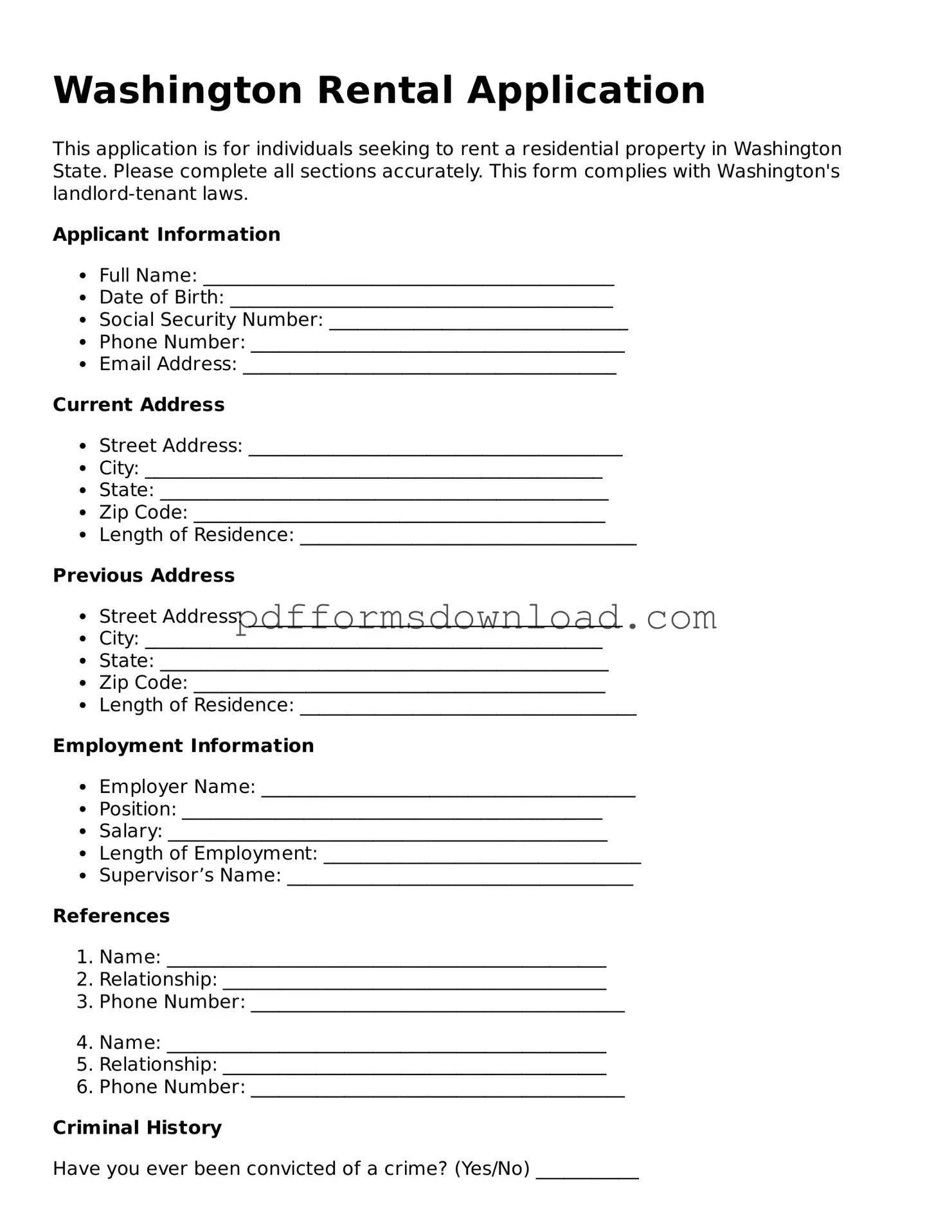What is the Washington Rental Application form?
The Washington Rental Application form is a document that potential tenants fill out to apply for a rental property. It collects essential information about the applicant, including personal details, rental history, employment information, and references. Landlords use this information to assess whether the applicant is a suitable tenant.
Who needs to fill out the rental application?
Any individual who wishes to rent a property in Washington must complete a rental application. This includes everyone who will be living in the rental unit, typically adults over the age of 18. Each applicant must provide their information for the landlord's review.
What information is typically required on the application?
The application generally requires your full name, contact information, social security number, employment details, income, rental history, and references. Some landlords may also ask for additional information, such as your credit history or background check consent.
Is there a fee for submitting the rental application?
Many landlords charge an application fee to cover the costs of processing the application, such as credit checks and background investigations. This fee can vary, so it’s important to ask the landlord about their specific charges before applying.
How long does it take to process a rental application?
The processing time can vary depending on the landlord or property management company. Generally, it can take anywhere from a few hours to several days. It’s a good idea to follow up with the landlord if you haven’t heard back within a reasonable time frame.
Can I be denied for any reason?
Yes, landlords can deny an application for various reasons. Common reasons include poor credit history, insufficient income, negative rental history, or a criminal background. However, landlords must comply with fair housing laws and cannot discriminate based on race, gender, religion, or other protected characteristics.
What happens if my application is approved?
If your application is approved, the landlord will typically contact you to discuss the next steps. This may include signing a lease agreement and paying the security deposit and first month's rent. Make sure to read the lease carefully before signing.
What if my application is denied?
If your application is denied, the landlord is required to provide you with a reason for the denial. You may also request a copy of your credit report, as this can help you understand the decision. If you believe the denial was unjust, you can inquire about the possibility of reapplying after addressing any issues.
Can I appeal a denial?

